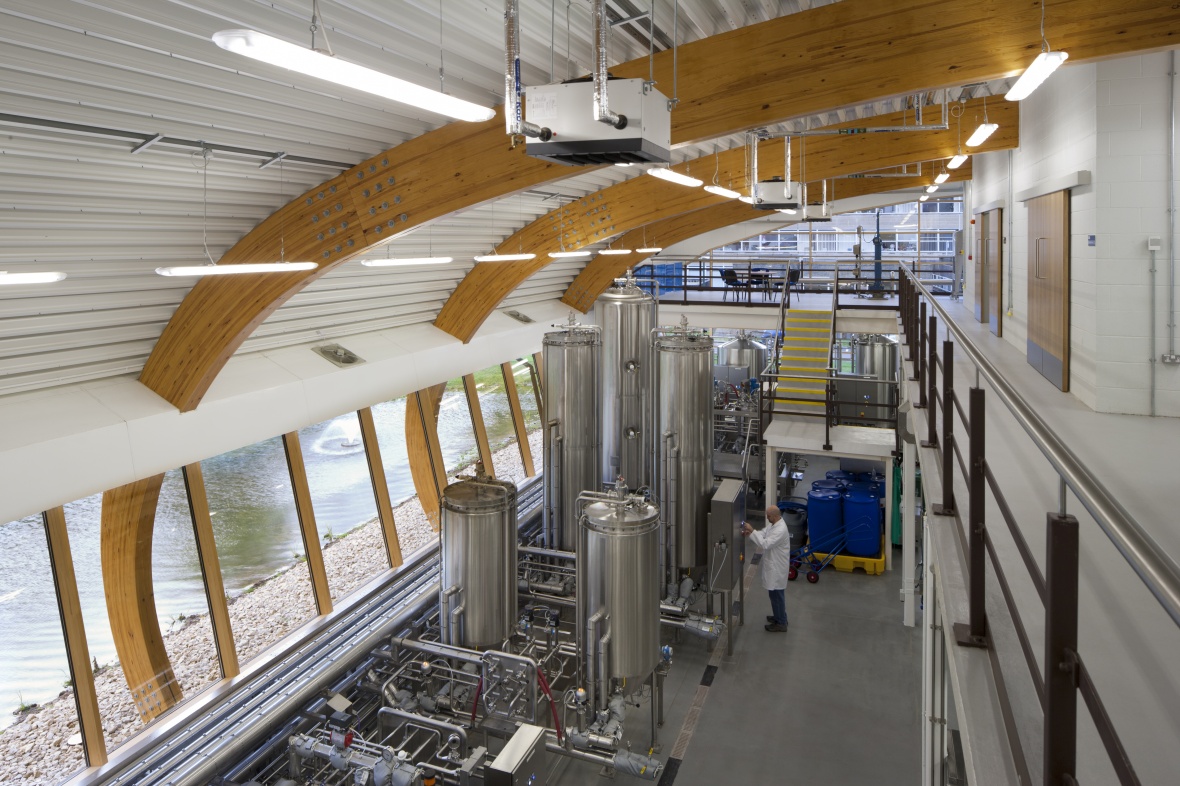Food scientists have stepped up to the bar to help brewers boost their productivity. The Food Innovation Centre, in conjunction with the International Centre for Brewing Science, both based at the University of Nottingham, has identified three key issues which can be a barrier to growth for small and medium-sized brewers.

Brewing kit at the Food Innovation Centre
A year-long project has now been launched to support brewers across Derby, Derbyshire, Nottingham, and Nottinghamshire, which seeks to tackle the common challenges faced by brewers — helping them to increase their productivity and become more competitive.
The brewery support service will run in the D2N2 Local Enterprise Partnership area, which is home to more than 100 small and medium-sized breweries. It will be run by brewing expert Rod White, and now the team at the Food Innovation Centre is calling on local brewers to come forward if they would like to be considered for the free support.
The project will be focusing on three key issues:
- Helping brewers to reduce their raw materials costs by switching from expensive dried yeast to wet yeast, which could improve profit margins by 15%.
- Supporting brewers who produce cask beer to also create small beer packs in cans or bottles to take advantage of the latest trend in the beer market, which has been steadily moving from casks and kegs to cans and bottles. Pre-Covid, the split was 55% cans and bottles, and 45% casks and kegs, but the Covid situation has massively accelerated this switch.
- Reducing raw energy consumption by showing brewers how they could take advantage of the latest processing techniques, which could cut energy consumption and costs by more than 50%, and reduce carbon dioxide emissions.
The project team plans to initially contact more than 40 small and medium-sized breweries in the D2N2 area, and then select up to ten key breweries which would benefit most from the focused support. During the project, information will be disseminated into the wider brewing sector to create a lasting legacy for the regional and UK-wide brewing community.
The brewery support service project is part of the broader D2N2 SME support project, Driving Research & Innovation — a three-year project that runs until the end of December 2022 in the D2N2 area of Derby, Derbyshire, Nottingham and Nottinghamshire.
Part-funded by the European Regional Development Fund (ERDF) via the D2N2 LEP, the project is run by the Food Innovation Centre at the University of Nottingham School of Biosciences, in conjunction with the Chemistry Innovation Laboratory in the School of Chemistry and Institute for Advanced Manufacturing and in association with the Midlands Engine. It is a unique collaboration project that provides free specialist innovation support to small and medium-sized businesses.
‘We hope this project will give our local brewers the support to flourish and propsper’
Richard Worrall, who heads the Food Innovation Centre, said: “The brewing industry has historically been an important sector in the East Midlands and remains a vibrant and innovative part of the local economy. However, small and medium-sized brewing enterprises have a number of potential challenges which can hold back growth and productivity, and we’re delighted to be launching a special project to help local brewers.
“Like many sectors, the brewing industry has been affected by the Coronavirus pandemic and we hope that this project will give our local brewers the support to flourish and prosper.”
Any SME brewers interested in finding out more should contact Richard Worrall via richard.worrall@nottingham.ac.uk.



